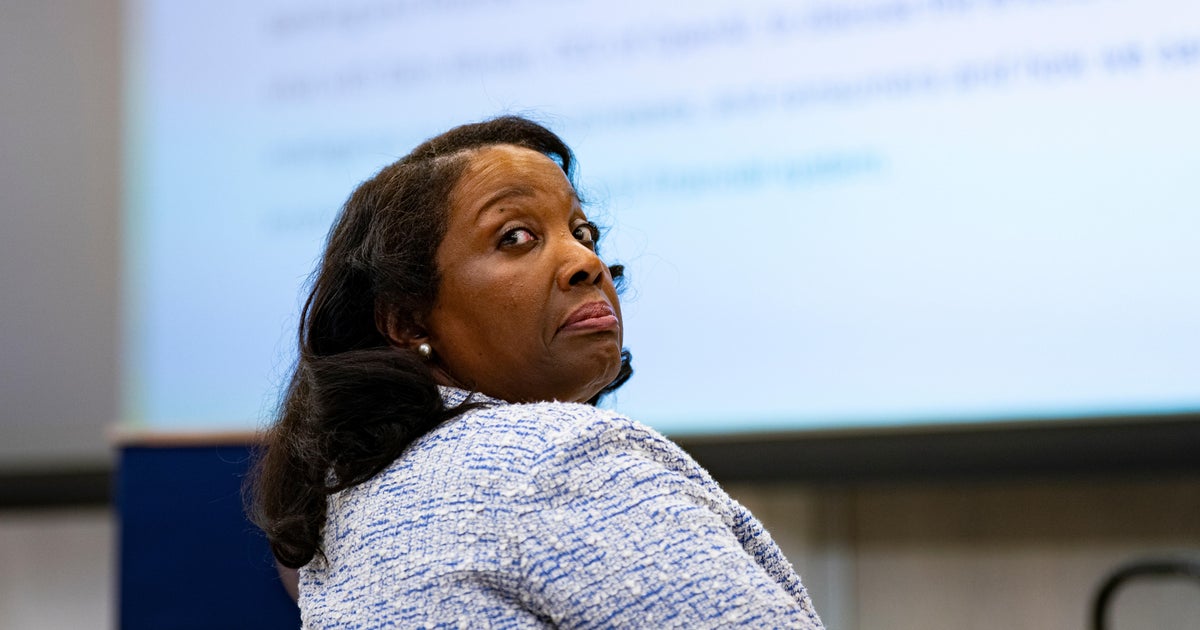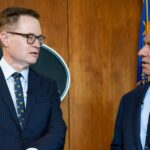In a recent development that has sent ripples through Washington D.C., Federal Reserve Governor Lisa Cook is fighting to retain her position amidst a contentious bid by President Donald Trump to dismiss her based on allegations of misrepresenting facts on mortgage agreements years prior to her appointment. The case, which unveils deeper concerns about the independence of the Federal Reserve, was drawn into the spotlight during a hearing on Friday, where a federal judge deliberated on the pertinent issues.
The hearing, overseen by U.S. District Judge Jia Cobb, a Biden appointee, spanned two hours of intense legal arguments from both sides. It marked a significant legal battle concerning the stability and autonomy of the Federal Reserve, highlighting the clash between the executive branch’s influence and the supposed independence of the U.S. central banking system.
The case was initiated by Cook’s legal team, who filed a lawsuit against President Trump’s decision, claiming it was both “unprecedented and illegal.” The lawsuit argued against the validity of Trump’s termination of Cook, suggesting that it was an unjust attempt to undermine the Federal Reserve’s independence. Cook, who had been appointed by President Biden in May 2022, was later reappointed to a full 14-year term expected to conclude in January 2038.
Central to the controversy are allegations leveled by Bill Pulte, Director of the Federal Housing Finance Agency and a Trump appointee. Pulte accused Cook of falsely listing two different properties in Michigan and Georgia as her principal residence in mortgage documents in 2021, ostensibly to secure favorable lending terms. Despite these serious accusations, Cook has not faced any civil or criminal charges. Additionally, it’s noted by her legal representatives that these instances occurred prior to her tenure as a Federal Reserve Governor, raising questions about the relevance and timing of these allegations in the context of her removal.
During the hearing, Cook’s attorneys argued that the alleged discrepancies did not happen while she was serving in her federal role and pointed out that there was no evidence suggesting that these were anything more than possible clerical errors, dismissing the idea that they were intentional acts of fraud.
The response from President Trump and his administration has been to emphasize the severity of potential fraudulent behavior in financial declarations by a senior financial regulator. Justice Department lawyers, defending the President’s decision, posited that such contradictions in financial documentation provide more than sufficient grounds for removal from office, regardless of whether criminal charges could be levied. They also argued that the judiciary should not second-guess the President’s judgment on what constitutes sufficient cause for removal, citing the need for deference to preserve the President’s constitutional responsibilities.
However, Judge Cobb appeared skeptical about the breadth of the President’s discretion in defining “cause” for removal and expressed discomfort with the notion that an administration might retrospectively invalidate the decisions and approvals of its predecessors. Moreover, she took issue with the due process provided to Cook, who was reportedly given only a half-hour notice following Pulte’s social media post about the allegations before President Trump demanded her resignation.
This case does not only examine Cook’s alleged personal misconduct but also probes the broader implications of executive influence over independent governmental bodies like the Federal Reserve. The arguments extend into constitutional debates about separation of powers and the checks and balances designed to prevent overreach by any single branch of government.
Adding another layer to the situation, the Supreme Court has signaled through its responses to similar cases involving other federal agencies, such as the National Labor Relations Board and the Consumer Product Safety Commission, that the Fed may warrant different considerations owing to its unique structure and role in the U.S. economy. This precedential distinction underscores the uniqueness of the Federal Reserve as a “quasi-private entity” steeped in a historical tradition different from other regulatory bodies.
The outcome of this legal battle holds significant implications not just for Lisa Cook and the Trump administration but also for the independence of the Federal Reserve and the broader landscape of U.S. governance. As the judicial process unfolds, it will be crucial to observe how definitions of accountability and independence are negotiated within the framework of U.S. constitutional law, setting precedents that could influence the functioning of government for years to come.









